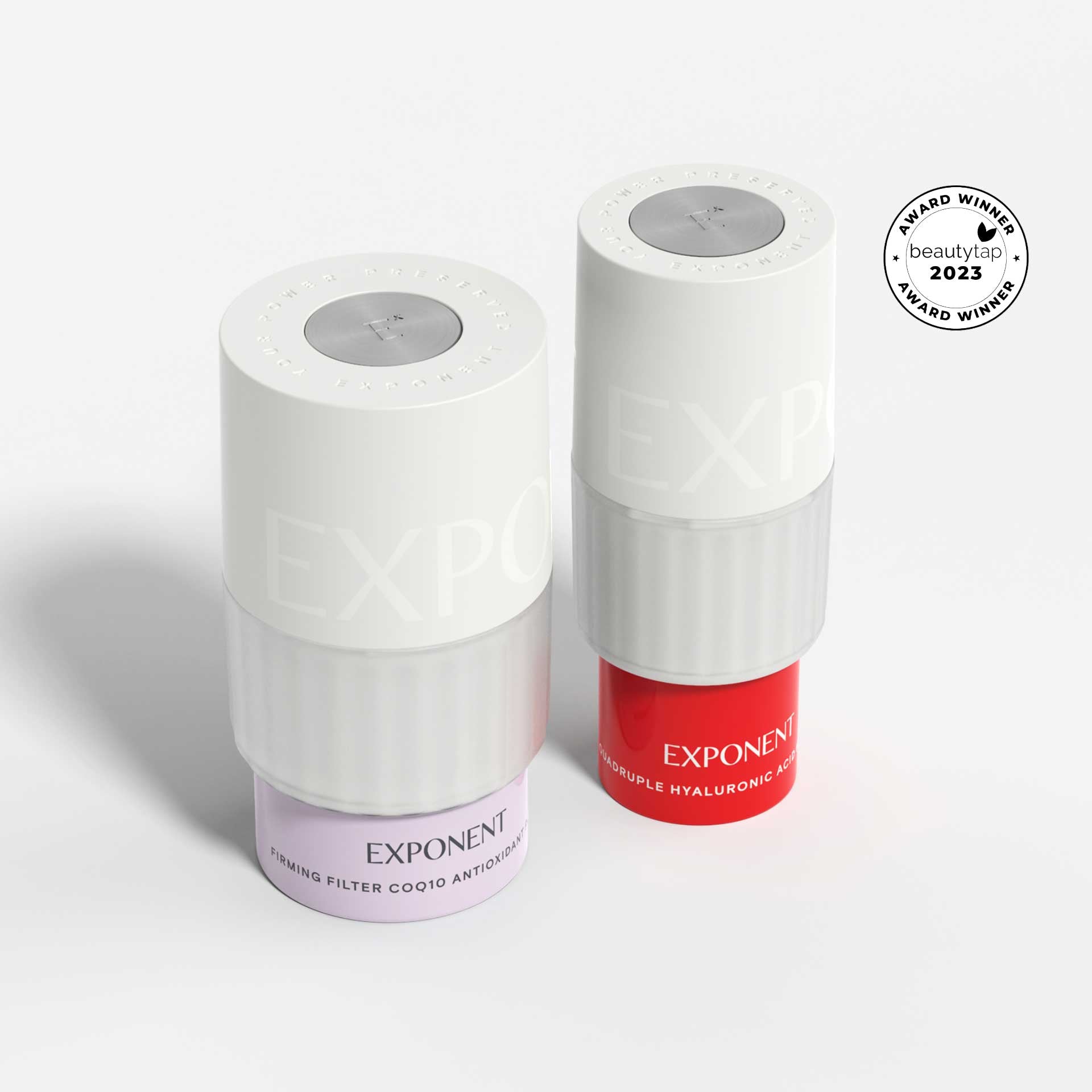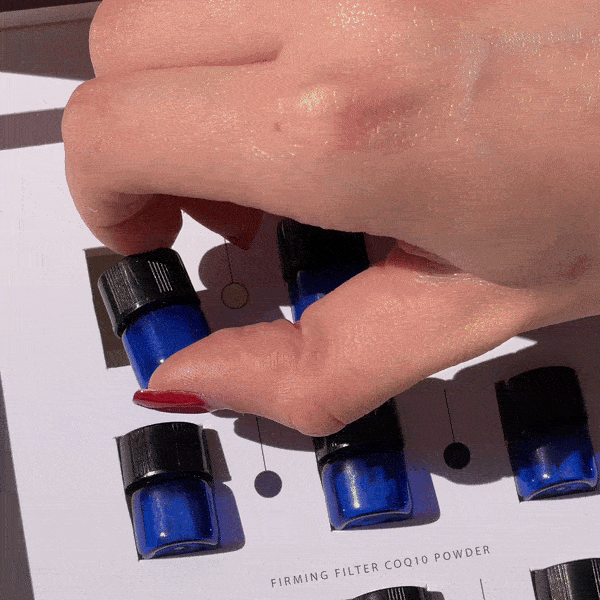One of the most common misconceptions in skincare is that sensitive skin is a type of skin. Contrary to popular belief, sensitive skin is a term describing a complexion that irritates easily, and anyone can experience sensitive skin at some point in their lives. Sensitive skin can be a feature of several conditions, such as eczema, rosacea, dermatitis, and acne. It can also become reactive in response to various triggers, like sun damage or particular skincare products. Whether you struggle with temporary sensitive skin or you're a year-round sufferer, having a reactive complexion is frustrating. Regardless of what you do, your skin may be red, inflamed, tight, and dry, and the quest to find the routine that won't worsen your condition is always daunting. Fret not, because we've got you covered — in this guide, you'll find everything you need to know about the right skincare routine for sensitive skin to minimize flare-ups without pitfalls and reinforce your complexion asap.
Caring for Sensitive Skin
Sensitive skin is usually described by redness, irritation, breakouts, and an uncomfortable tight feeling. When caring for a reactive complexion, consider products made with soothing and repairing ingredients and preferably formulated for sensitive skin.
The best thing to do is to fight sensitivity at the root and reinforce the protective barrier to make it less inclined to damage in the first place. To do so, you must simplify your routine and cut down on products with potentially drying compounds like alcohol, synthetic fragrances, harsh chemicals, sulfates, and exfoliants. Ideally, try to pick products with as few ingredients as possible — like powdered formulas that skip fillers — to minimize the chance of flare-ups. Look for ingredients that help toughen up your sensitive skin, like niacinamide, peptides, and ceramides, and mild antioxidants such as asiaticoside and green tea to defend against free radical damage.
Also, sensitivity can manifest all over the body, so it's important to treat it gently and address it accordingly. Use a fragrance-free shower gel, limit your time in the shower, don't wash with hot water, apply moisturizer on damp skin after showering, and avoid using scrubbing brushes.
Skincare Routine for Sensitive Skin
Creating an effective skincare routine for sensitive skin is difficult, considering that any mishaps can lead to more reactions, redness, or irritation. To make this arduous task easier, here are a few tips for putting together a step-by-step ritual that fits your sensitive skin.
Sensitive Skin Cleanser
Washing your face can seem prosaic, but it is the most important step of the skincare routine that eliminates bacteria and pollution accumulated during the day and allows other products to sink in. The ideal face wash for sensitive skin should dissolve impurities and gunk without stripping essential moisture. The rule of thumb is to use a mild gel or creamy cleanser that skips moisture-depleting ingredients like abrasive particles, perfumes, and sulfates. Wash your face twice daily with a non-drying cleanser and lukewarm water, and pat it dry without rubbing.
Sensitive Skin Toner
Toner is the perfect in-between step that removes any impurities left behind by the cleanser and enhances the penetration of the products you apply afterward. A good toner for your sensitive complexion should balance skin pH and load calming actives like niacinamide, centella asiatica, squalane, and allantoin. Steer clear of toners with alcohol or other astringents (think witch hazel), as they can strip the skin.
Sensitive Skin Serums
Face serums usually pack higher amounts of actives than the rest of your skincare products, so picking one that aligns with your needs is key. Remember, what's not in your serums is just as important as what is. Harsh chemicals, synthetic fragrances, and drying alcohol (alcohol denat, ethanol, isopropyl alcohol) are some of the biggest culprits to the barrier function, so avoid products that contain them. Instead, choose gentle serums that pack calming, anti-inflammatory, and restorative compounds, like hyaluronic acid, aloe vera, green tea, and niacinamide.
The Exponent Collection For Sensitive Skin is the perfect addition to your sensitive skincare routine. They skip all of the harsh elements that may further sensitize the complexion and are laced with tried-and-true actives that deliver without irritation. For example, our Calm Revival Green Tea Resveratrol Serum is ultra-soothing and features barrier function-bolstering actives, including EGCG, resveratrol, and asiaticoside. Firming Filter CoQ10 Serum is another great option because it protects, fortifies, and soothes with coenzyme Q10, shea butter, and quercetin. The serums get activated by the Quadruple Hyaluronic Acid Hydrator, which contains four molecular weights of hyaluronic acid plus five other humectants. When applied to the skin, they work like a magnet for drawing moisture into the tissue — a special treat for a bothered complexion.
Sensitive Skin Moisturizer
Moisturizing sensitive skin can improve moisture retention, reduce irritation, ease swelling, and fix the protective barrier. Even if you struggle with oiliness, keeping your skin moisturized is critical to maintaining a resilient barrier, reducing the chance of damage, and even balancing sebum production. The secret lies in choosing a light, non-comedogenic moisturizer.
Cleansing and exfoliating sensitive skin without moisturizing can lead to excessive dryness, and inflammation or drive the sebaceous glands to produce more sebum in the case of oily complexions. Moisturizing is essential, and selecting one that addresses sensitive skin requires extra care. Use a product with hyaluronic acid, ceramides, squalane, and colloidal oatmeal that can help repair the barrier, which is often impaired for sensitive skin. Opt for a moisturizer that leaves out ingredients like artificial dyes and fragrances, chemical UV filters, and parabens.
Sensitive Skin Sunscreen
Your first line of defense will always be sunscreen. Pick a sensitive-friendly product with at least SPF 30. Look for a sunscreen labeled as non-comedogenic and uses physical sun blockers (like zinc oxide and titanium dioxide) instead of chemicals, such as oxybenzone or octinoxate. Layer sunscreen as the last step of your morning routine and reapply it every two hours if you spend time outdoors.
Tips: Skincare for Sensitive Skin
Here are a few additional tips for caring for sensitive skin at home:
- Avoid ingredients that could irritate your skin, like harsh chemicals and fragrances
- Limit exfoliation to once weekly and use a gentle exfoliator with 5 or 10% lactic acid
- Keep your skin hydrated from the inside and out
- Always cleanse skin after exercising or sweating to prevent breakouts and irritation (on the face and body)
- Use high-quality, limited-ingredient products for your skin and hair to reduce the chance of skin irritation
- Perform a patch test every time you add a new product to your skincare regimen
Skincare for Sensitive Skin FAQ
Below we answer your most burning questions about sensitive skin to summarize the most important aspects:
Why is my skin so sensitive?
Potential causes of sensitive skin include genetics, conditions like eczema or dermatitis, reactions to specific ingredients, or sun damage. Over-exfoliation, poor skincare, or not actively moisturizing your skin can also lead to sensitive skin.
How do you know if you have sensitive skin?
Usually, sensitive skin is described by reactions to external triggers like skincare products or weather and can include feelings of: tightness, redness, itchiness, and dryness. Peeling, breakouts, and stinging sensations are also signs of sensitive skin.
What skincare brand is best for sensitive skin?
Sensitive skin should look out for skincare brands that skip harsh chemicals and potential irritant stimuli in their formulas. Exponent is an ideal brand to rely on when your skin is sensitive because it includes gentle and potent actives and doesn't use sensitizing compounds.
What should I avoid if I have sensitive skin?
If you have sensitive skin, you should avoid products that contain artificial fragrances, harsh exfoliants, drying alcohol, sulfates, chemical sunscreens, and comedogenic ingredients.
How do I start a skincare routine for sensitive skin?
A good routine for sensitive skin should start with a gentle cleanser, followed by a pH-balancing and alcohol-free toner, a serum that addresses sensitive skin, a repairing moisturizer, and sunscreen with at least 30 SPF.
Treat Your Sensitive Skin Right with Exponent Serums
All things considered, less is more when dealing with sensitive skin. In addition to bouncing back from potentially irritating compounds, add to your routine products that contain bare-bone ingredients and aim to protect, calm, and strengthen the complexion. Exponent self-activated serums are a terrific start to keep your sensitive skin happy — the Classically Flawless Kit features mild active ingredients that perfect the skin without irritation.
*This product is not intended to diagnose, treat, cure, or prevent any disease.







